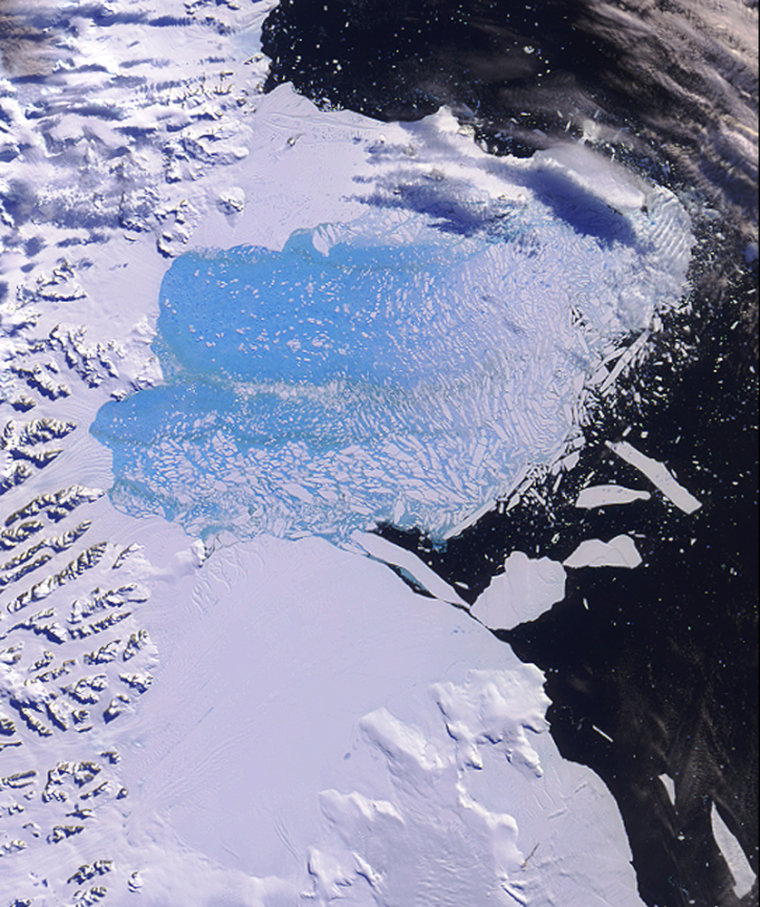Scientists from around the world were in Paris on Tuesday to finalize a long-awaited, authoritative report on climate change that is expected to give a grim warning of rising temperatures and sea levels.
The Intergovernmental Panel on Climate Change is to unveil its latest assessment of the environmental threat posed by global warming on Friday.
As the panel meets, the planet is the warmest it has been in thousands of years — if not more — and international concern over what to do about it is at an all-time high.
"At no time in the past has there been such a global appetite" for reliable information on global warming, the panel's chairman, Rajendra Pachauri of India, told the conference.
Scientists are keeping quiet about the contents of the report, but say it is both more specific and more sweeping than the panel's previous efforts.
Early drafts of the document give a rosier picture than that of the last report, in 2001, foreseeing smaller sea level rises than previously predicted. But many top scientists reject the new figures as not new enough: They do not include the recent melting of big ice sheets in two crucial locations — Greenland and Antarctica.
Closed-door talks
That debate may be central at this week's meetings at the UNESCO headquarters in Paris. After four days of closed-door, word-by-word editing involving more than 500 experts, they will release the first of four major global warming reports by the IPCC expected this year.
"We're hoping that it will convince people that climate change is real and that we have a responsibility for much of it, and that we really do have to make changes in how we live," said Kenneth Denman, one of the report's authors and senior scientist at the Canadian Centre for Climate Modelling and Analysis.
It has been an unusually warm winter in some parts of the world, and awareness of the consequences of climate change is growing.
Last week, President Bush referred to global warming as an established fact, after years of arguing that not enough was known about global warming to do anything about it.
The panel, created by the United Nations in 1988, releases its assessments every five or six years — although scientists have been observing climate change since as far back as the 1960s.
While critics call the panel overly alarmist, it is by nature relatively cautious because it relies on input from hundreds of scientists, including skeptics and industry researchers. And its reports must be unanimous, approved by 154 governments — including the United States and oil-rich countries such as Saudi Arabia.
Pachauri said the report would make "significant advances" over the 2001 report, addressing gaps in that document, reducing uncertainties and adding new knowledge about past changes in climate.
Sea level scenarios
The early versions of the new report predict that by 2100 the sea level would rise between 5 and 23 inches. That is far lower than the 20 to 55 inches forecast by 2100 in a study published in the peer-review journal Science this month. Other climate experts, including NASA's James Hansen, predict even bigger sea level rises.
Some critics worry that the IPCC scientists did not take into account shifts in Greenland and Antarctica.
In the past, the panel did not expect a large melt of ice in west Antarctica and Greenland in this century. Their forecasts were based only on how much the sea level would rise because of melting glaciers, which are different from ice sheets, and the physical expansion of water as it warms.
But in 2002, Antarctica's 1,255-square-mile Larsen B ice shelf broke off and disappeared in 35 days. And recent NASA data shows that Greenland is losing 53 cubic miles of ice each year — twice the rate it was losing in 1996.
Scientists are struggling with how to plug this information into their computer models.
Many fear this will mean the world's coastlines are swamped much earlier than most thought. Others believe the ice melt is temporary and won't play such a dramatic role.
In recent years, scientists have documented a dramatic retreat of the Arctic sea and the virtual collapse in mountain glaciers around the globe. They have found plants and animals closer than normal to the poles. They have recorded temperature records in many locations and shifts in atmospheric and oceanic circulation.
Indonesia's environment minister warned Monday that rising sea levels stand to inundate some 2,000 of his country's more than 18,000 islands by 2030.
This week's meetings do not address how to tackle global warming, the subject of a report later this year by the IPCC.
